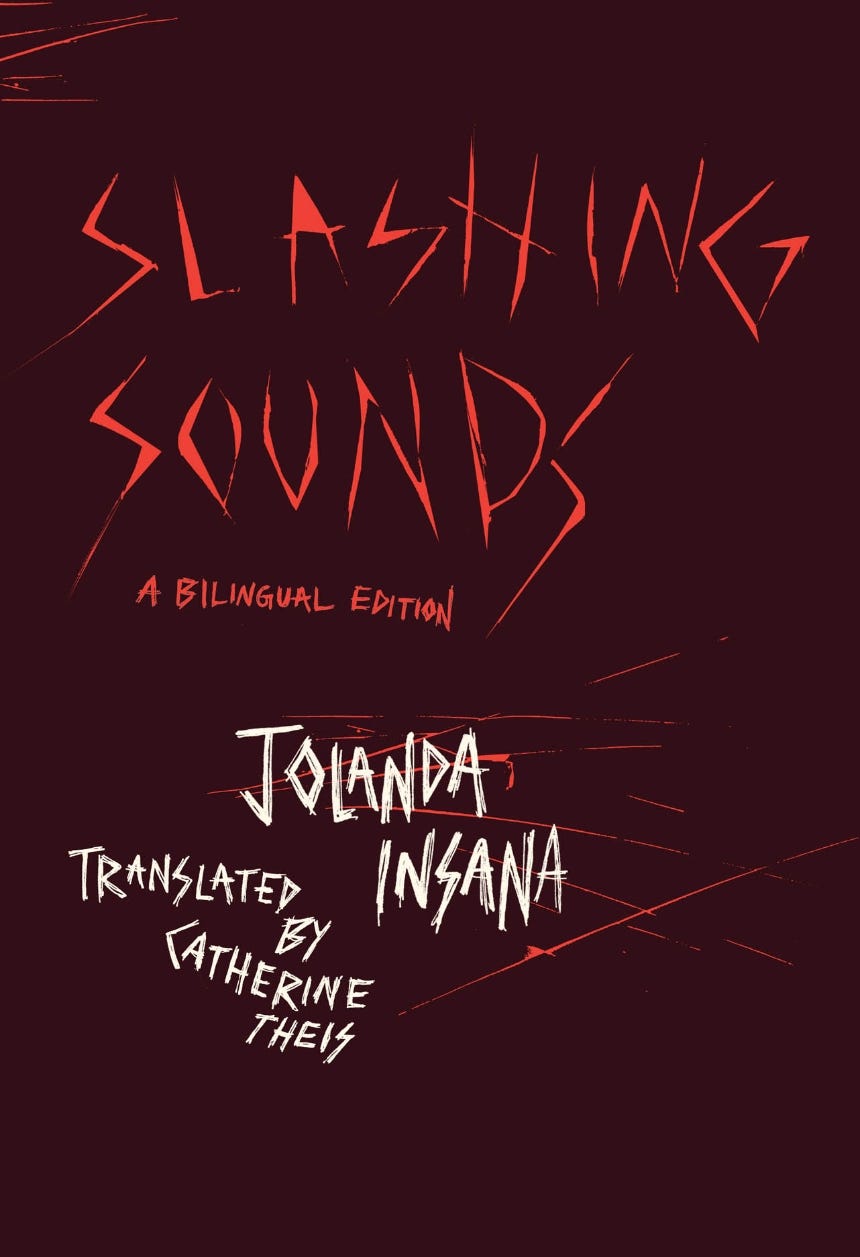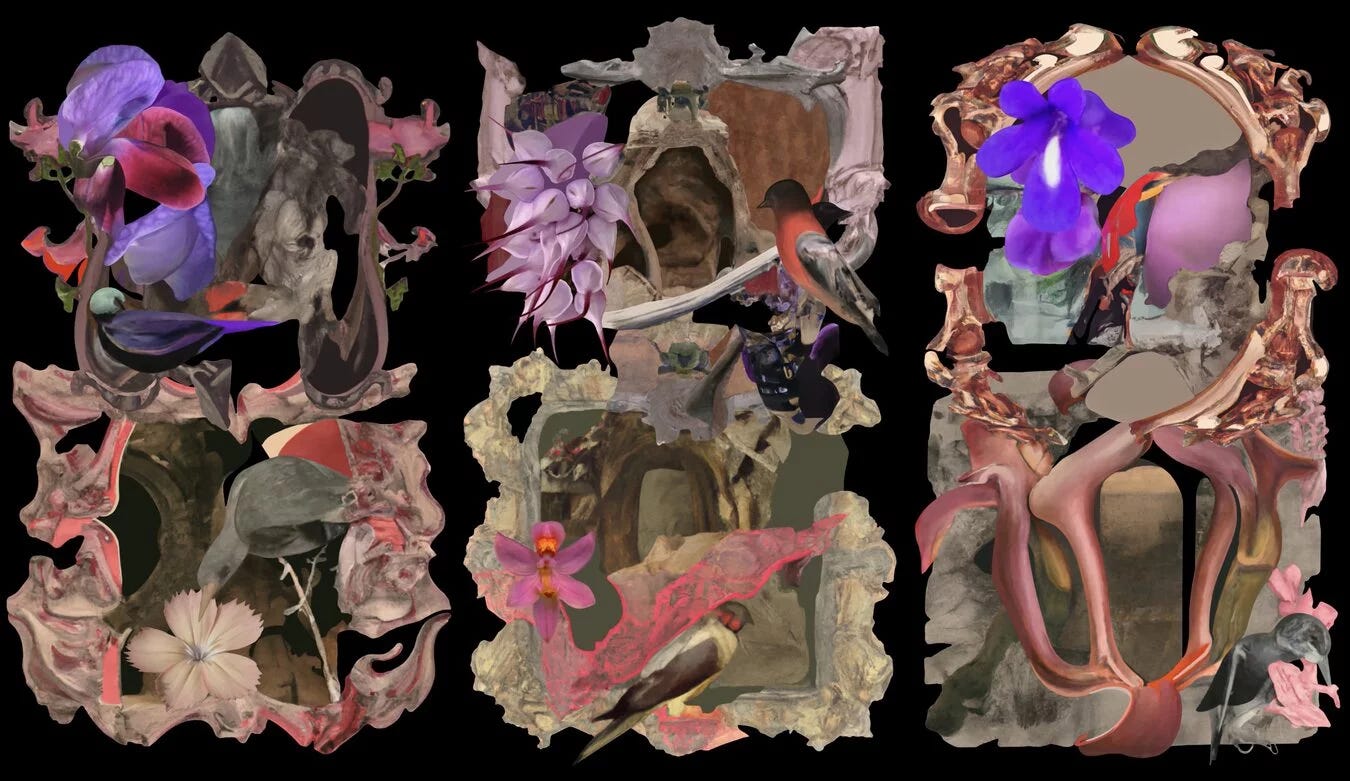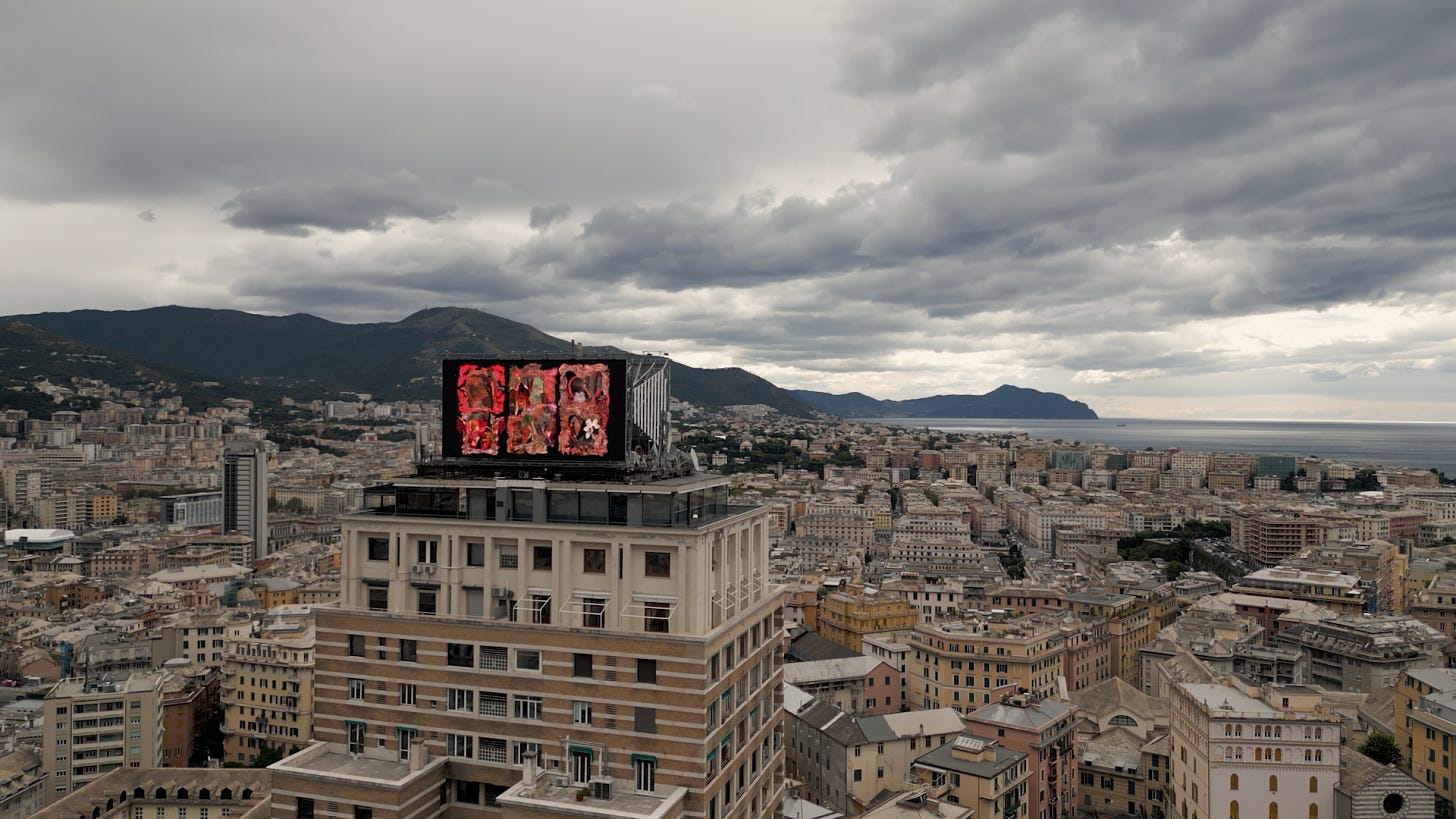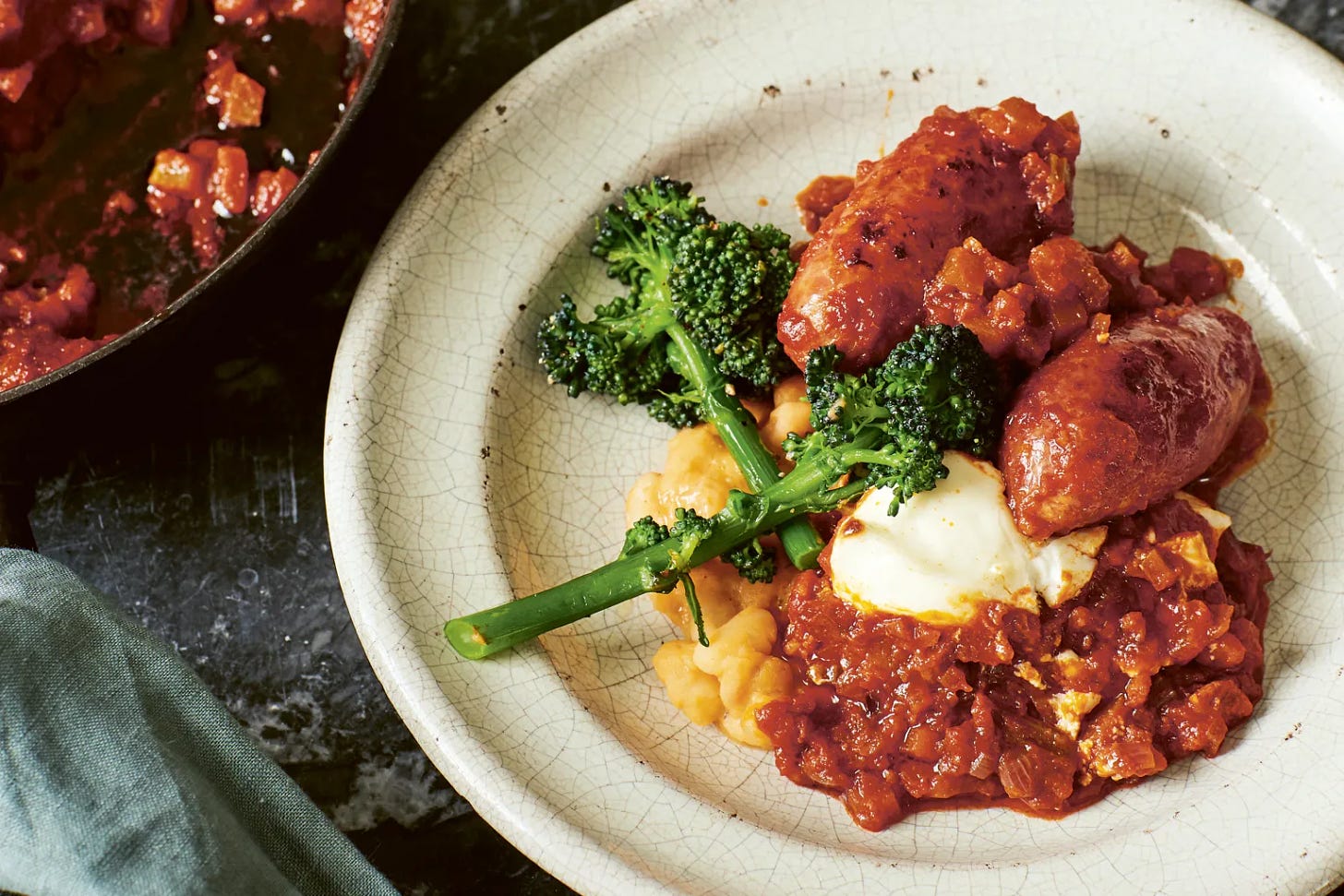Salvini's Last Dance?
Plus, Alessandro Giuli’s ‘supercazzola’ moment and poetry from Jolanda Insana
Last Sunday, leaders of the European Parliament’s far-right 'Patriots for Europe' group (PFE) gathered in the Italian town of Pontida to show their support for Matteo Salvini, the Secretary of the League, who is currently facing a possible six years in prison for his brutal impounding of 147 refugees aboard the Open Arms ship back in 2019. The rally was an unedifying spectacle to put it mildly. Hundreds of local League members joined international leaders including Viktor Orban and Geert Wilders to big-up Salvini at an event which ran with the tagline: 'Defending borders is not a crime.' Salvini himself seemed to relish in the moment. "They can arrest a single person,” he proclaimed, “but they cannot stop this holy alliance of European peoples that is born today in Pontida!” The Minister’s words were fiery and defiant, but the fact is the judges are closing in. The prosecutors in Palermo have built a tight case over the past few years thanks to testimonies from ex-Prime Minister Giuseppe Conte, and former Foreign Minister Luigi Di Maio, confirming that Salvini took an individual decision regarding Open Arms and that his actions did not reflect the government’s position at the time. Taken alongside eyewitness accounts of inhumane conditions (those aboard were forced remain in a confined space for over a week, despite a scabies outbreak) Salvini’s chances do not look good. The next hearing will take place on 18 October, though it’s unclear if a verdict will be delivered on that date. In the meantime, Salvini’s supporters, in Patriots for Europe and beyond, have pledged to take to the streets to defend their leader against an illegitimate “show trial.” Hopefully, violence can yet be avoided…
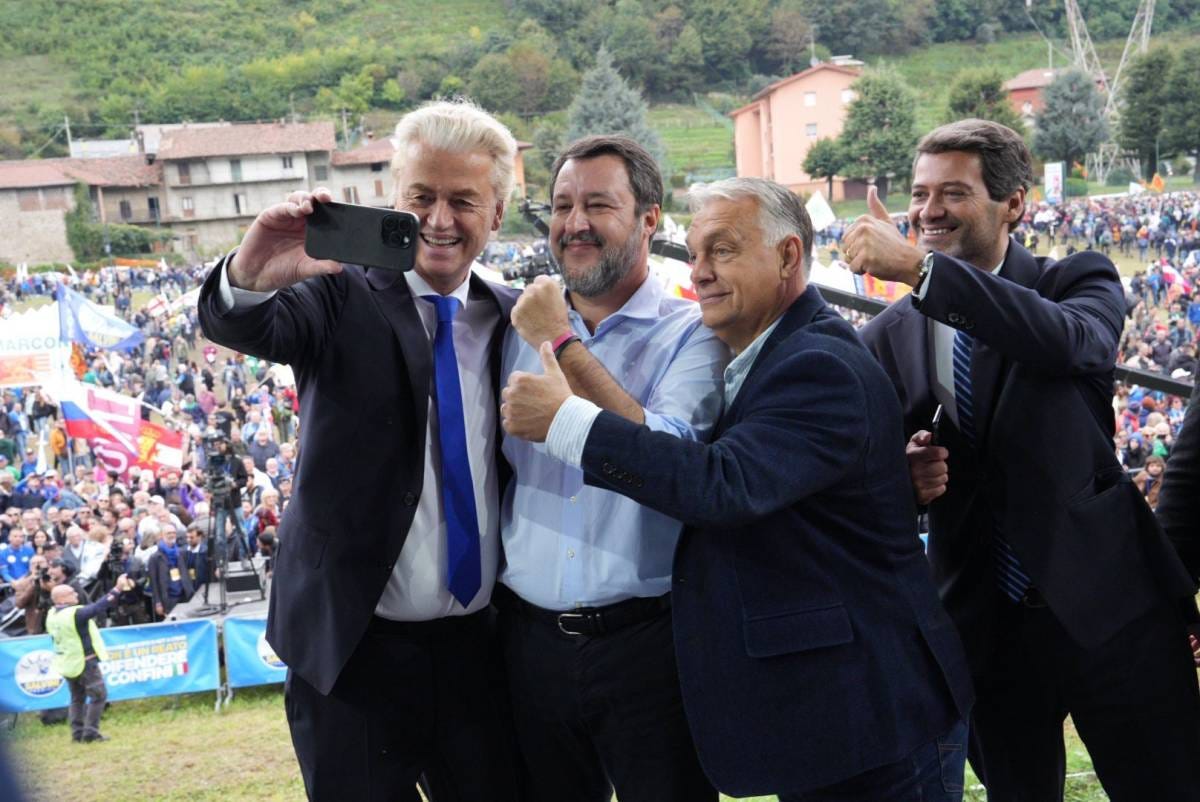
A couple of weeks ago I dedicated a short segment of this newsletter to exploring what the appointment of Alessandro Giuli as Culture Minister might mean for Italy. Well, let’s just say there have been some developments. On Tuesday, Giuli delivered a frankly bizarre speech to parliament in which he evoked Hegel’s cryptic maxim that "knowledge is one’s own time learned with thought" before launching into a spiel about contemporary history which left his fellow ministers, not to mention the public, baffled. "We are faced with a new paradigm shift, the fourth epochal revolution in history outlining an ontology in tune with the permanent revolution of the global infosphere,” he began, to bewildered looks. “The risk we run is twofold and specular,” he continued, defining his terms as “‘passive enthusiasm’, which removes the dangers of hyper-technologisation, and conversely ‘defensive apocalypticism’ that pines for a bygone image of the world, grasping an ideology of crisis that is perceived as a trial of technology and the future understood as a threat." If you’re struggling to grasp that, you’re not the only one. Online commenters have, with glee, likened Giuli’s remarks to a scene in the 1975 film Amici Miei, when Ugo Tognazzi befuddles a police officer through deliberately contrived rhetoric known as a supercazzola. But there’s a serious side too. At a time when the cultural sector is so hampered by elitist politics, the appointment of a Minister who is clearly so far out of touch with the real world shows yet again how blind this government is to the needs of the nation it claims to represent. If you speak Italian do check out the recording below which really does beggar belief.
OK, time for a social media tip. If you’re a fan of Puglia or are simply looking for advice about how best to explore the heel of the Italian boot, Diana Henry has got you covered. This week the British food writer has been embarking on a tour of the south-eastern Italian region and, as you’d expect, her on-the-ground tips are a million times more useful than the vast majority of generic travel articles and blogs. Henry is an excellent researcher, and, while she often downplays her scholarly credentials, you can tell she’s done her homework. Over the past few days the author has been exploring Bari and Monopoli, feasting on oysters and gelati. She’s also been down in Gallipoli, where she ate at La Puritate fish restaurant, and Ceglie where she seems to have discovered the perfect place for Pugliese piatti di terra at Cibus trattoria. Henry is just finishing-up her journey but my bookmarks folder is already exploding with tips for itineraries, hotels, recipes, restaurants and wine. Follow her on Instragram now at dianahenryfood to catch her concluding wrap-up post which she’s due to publish sometime tomorrow morning.
Arts & Culture: How to Say Nothing
I’m a bit late to the party on this one, but better late than never as they say. A couple of months ago Chicago Press’s Phoenix Poets imprint published a new English translation of Jolanda Insana’s collection Slashing Sounds. This is a wonderful literary event! Insana, who was born in 1937 in Sicily and died in 2016, was, for decades, one of Italy’s most exciting female poets (or better yet, one of the country’s most exciting poets full stop). Her verse was and remains defiant, enigmatic and entirely original; charged with classical allegory and Latin references but always maintaining an immediacy and concreteness that flies in the face of so much obscure postmodern academic writing. Translating this kind of work is, of course, an enormous challenge, but Catherine Theis has done an admirable job of rendering Insana’s fiery individualism in English. Like these beautifully direct lines from ‘I Said Nothing’: “I invent myself as I like / outside and inside the world / through butchers shops taverns and fireworks / sometimes I let myself go / and then yes there’s trouble.” Great stuff indeed. Buy the collection straight from the publisher here if you’re interested.
A nische one this, but, hey, that’s the beauty of a newsletter, isn’t it? Drawing attention to the lesser-known stories. This month the Brazilian artist Deborah Hirsch has got an installation in the port city of Genoa on top of the Grattacielo Piacentini building. The artwork, which was created with funding from the digital art platform NEXUS, is billed as “an immersive experience” which aims to unite art and science in a format to give visibility to the natural flora and fauna. Hirsch set out to create digital representations of the local area’s plant and animal life as a way of drawing attention to and valorizing the dramatic biodiversity that is so present in Liguria. The result is a kind of “living archive” that celebrates the richness of the local ecology. The location, meanwhile, serves to highlight the threats that human ‘development’ pose to the ecosystem via mass tourism and industry. The installation will be in place until 20 October, so do drop by if you’re passing through Genoa. If not, check out the images below for a nice reminder that even “provincial Italy” is home to some exciting artistic interventions every now and then.
Recipe of the week: Roasted Italian sausages with borlotti beans and 'nduja sauce
Looking for a hearty, decadent dish to see in these first autumn nights? Well, I’ve got just the thing for you. This recipe is from Theo Randall’s excellent book Italian Deli, a collection that aims to help home cooks prepare restaurant quality food using the very best Italian ingredients. The star of the show, on this occasion, is the humble Italian sausage, ideally a Tuscan or Piemontese variety with plenty of seasoning and minimal to zero filler. On paper, this might seem, basically, like pork and beans. Which, in a sense, it is. Randall, however, adds some cheffy touches to really elevate the whole affair. He makes a quick vegetable ragu, using red wine to establish a deep savoury base. He adds nduja for an element of spice but cleverly balances it out with mascarpone, to lighten the chili load. The maestro insists on using dried borlotti beans here, but personally I’ve found a good quality canned variety works just as well in this instance. Aside from that, please don’t listen to me: just follow his instructions to the letter and you’ll be guaranteed a dinner to remember. Here’s the link.
I’m Jamie Mackay, a UK-born, Italy-based writer, working at the interfaces of journalism, criticism, poetry, fiction, philosophy, travelogue and cultural-history. I set up ‘The Week in Italy’ to make a space to share a regular overview of the debates and dilemmas, innovations and crises that sometimes pass under the radar of our overcrowded news feeds, to explore politics, current affairs, books, arts and food. If you’re a regular reader, and you enjoy these updates, I hope you’ll consider becoming a supporter for EUR 5.00 per month. I like to think of it as a weekly catch-up chat over an espresso. Alternatively, if you’d like to send a one-off something, you can do so via PayPal using this link. Grazie!




